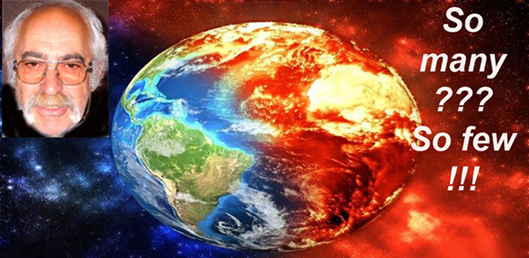Who cares that Vladimir Lenin and Josef Stalin have committed crimes against humanity?
Vladimir Putin, their successor in the Kremlin, certainly doesn’t.
Talking to a Soviet war veteran during D-Day commemorations in Normandy, Putin said it would be a good idea to have a referendum to decide whether to rename Volgograd to its original historic name of Stalingrad. That it used to be Tsaritsyn before it would become Stalingrad never seemed to have crossed his mind.
The communists in St. Petersburg (or Petrograd in Russian) happily jumped on board. Vladimir Dmitriyev, their leader at St. Petersburg city hall, said it would be a splendid idea to rename his city, too. It would become Leningrad once again. Russia’s communit leader Gennadii Zyuganov agreed wholeheartedly.
The movement to name those cities after two of the three greatest war criminals (Adolf Hitler was the third one) of the 20th century has begun gaining strength. The forthcoming celebrations of the 70th anniversary of the end of World War II, coming next year, have given the plan yet another impetus.
“Two hero-cities, Leningrad and Stalingrad, aren’t on the maps of the world,” said Dmitriyev, the communist fraction chief in the St. Petersburg city hall. “It is necessary to renew the historical justice.”
Putin’s office would try to soften the impact Putin’s words had. His spokesman, Dmitriy Peskov, said Putin never said it was his wish to have those two cities renamed. This contradicted his chief’s outspoken statement to the effect that it would be worth the country’s while to put the question to the citizenry in a referendum. The backpedalling was understandable. Several influential parliamentarins in the Russian Duma expressed outrage over the idea. Except: some of the local politicians have already announced they were planning to use the “historic” names on some occasions, especially those that are linked to the war in one way or another.
It was Peter the Great, Russia’s Tsar at the time, who founded St. Petersburg in 1703. The name was translated into its Russian version (Petrograd) in 1914, and in 1924, following communist leader Vladimir Lenin’s passing, it became Leningrad. When the Soviet Union disintegrated in 1991, the authorities of the day brought the original name back.
It would take several years for Stalingrad to become Volgograd. Then-Soviet leader, Nikita Khruschev, revealed that Stalin was a mass murderer in a then-secret speech at the communist party congress in 1956. Stalingrad, the place that saw one of the major battles waged during the World War II, became Volgograd only in 1961.
Why is this an important issue?
Vladimir Lenin brought the criminal ideology of Marxism to Russia and led the overthrow of a democratically elected government in October of 1917.
Some people believe to this day that he was a relatively benign ruler, that it was Stalin who turned the Soviet Union into one great death camp.
Not so.
It was Lenin who instituted state-sponsored terror in his country. In fact, Lenin said publicly he would do it. And he did. The so-called Extraordinary Commission to Fight the Counter-revolution was his invention. It was the infamous Cheka, that would develop into GPU (Glavnoie politicheskoie upravlenie – Main political administration), then NKVD (Narodnyi kommissariat vnutrennikh del – National commissariat of internal affairs), through the ministry of state security (MGB) all the way to the still-feared KGB (Komitet gosudarstvennoi bezopasnosti – Committee for state security).
It was Lenin who personally ordered that his new government start building concentration camps all over the country. Under Lenin’s specific orders, they were supposed to deal with those who had the gall to look askance at the new rule and rulers. In fact, Lenin coined the name, too.
It was Lenin who personally ordered the massacre of the last Tsar’s entire family in what used to be Ekaterinburg, Sverdlovsk under the Soviet rule, and Ekaterinburg now again.
Stalin, Lenin’s successor, would oversee the deaths of more than 20 million people, most of them perfectly innocent of any crime.
Stalin was the guy who ordered that, in order to subdue Ukraine, the country be exposed to a famine that would kill millions.
The list of crimes against humanity perpetrated by these two would take volumes of historical data to describe. Suffice it to say that calling them criminals is the nicest thing one can say about them.
And yet, here come efforts to rehabilitate them, to make them look like great leaders whose lives’ deeds have put the world on the path to progress.
Progress, indeed.
The strangest thing about it all is that not many people elsewhere in the world would murmur a single word in protest. That is, if they even ever registered the strange goings on in Russia.
Just imagine the uproar if someone suggested that Braunau am Inn, a small Austrian town that had the misfortune of being Hitler’s birthplace, be renamed into, say, Hitlerstadt.
